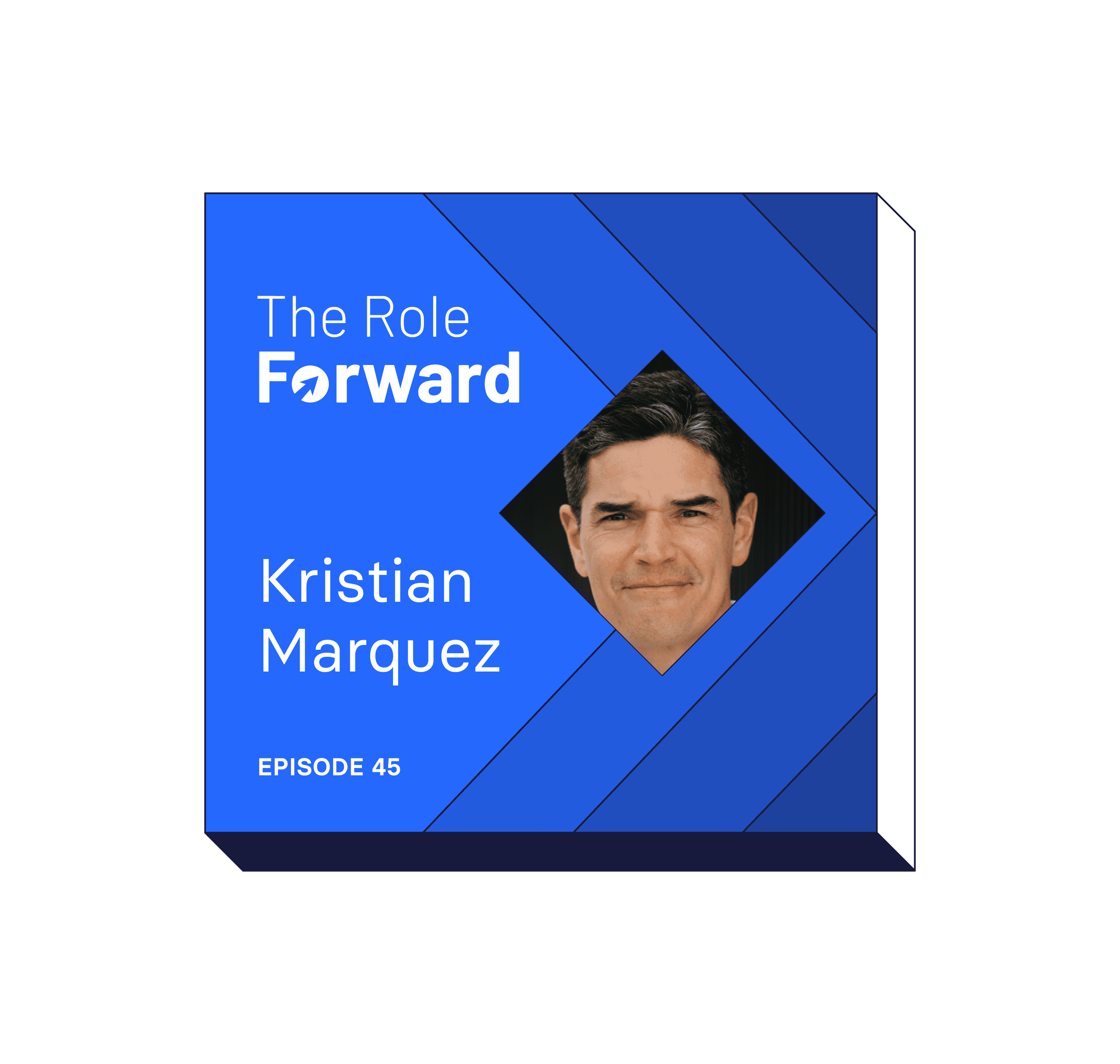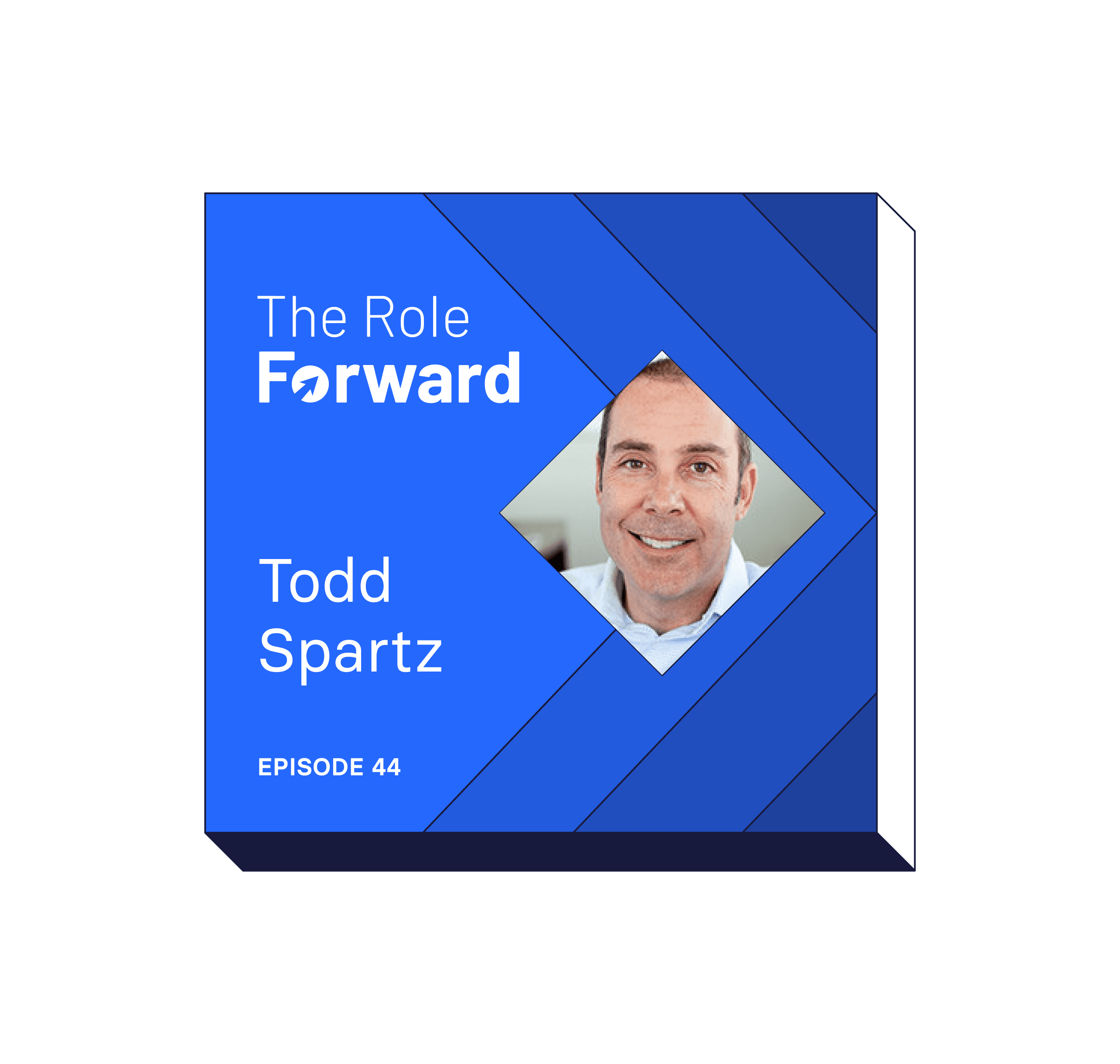Andi Ruda on Cash Flow Management
Andi Ruda, CEO and Founder of Rainbow CFO breaks down cash flow management essentials and why you shouldn't overcomplicate finance.
Episode Summary
Most of us perceive finance as the ‘boring’ sector in every organization and we find it hard to understand. But, it’s quite the opposite.
If we look at any business, the goal is to make money. So, aside from sales and marketing, finance is the department that helps businesses grow. So, it is time companies, especially startups, acknowledge the significance of roles, such as CFO.
In this episode of The Role Forward, our guest is Andi Ruda, the founder and CEO of Rainbow CFO. Prior to starting her own business, Andi worked as the full-time CFO at three different companies.
The experience she gained during that period and the challenges and struggles she saw many companies face when determining their financial strategies, empowered her to dive into entrepreneurship and dedicate her career to helping companies grow and to turning business owners’ ideas into reality.
Andi and our host Joe Garafalo discuss the best cash flow reporting practices, the tools she uses, and the steps everyone starting a finance career or aspiring to become a CFO should take.
Watch the Full Video
- Cash flow management is the fundamental starting point for getting a startup's finances in order.
- Your cash flow forecast vs. actuals report contains critical insights to improve financial and operational health.
- The fractional CFO model brings a level of accountability to companies that aren't quite ready to bring on a full-time finance leader.
Episode Highlights from Andi Ruda
5:20 — When the Fractional CFO Model Makes Sense
”It’s a long-winded way of explaining how I got to Rainbow CFO. Why am I the happiest I’ve ever been? The founders win because they get access to someone who’s done it many times before; I win because I get the flexibility of working with multiple clients at once and really focusing on my strengths.
I feel like everyone’s very happy; everyone’s pushing each other. We’re all learning a lot every day. And, honestly, I think that, right now, the fractional CFO model times out around a, let’s say, Series B. But I think, in the future, the CFO role might be one that’s fractional way beyond that.
I think more and more people see the benefits of what I and other people in my role bring to the table. I’m getting to talk to partners like Mosaic, who are the FinTech leaders out there, and learning more about their product and then bringing it to all my clients because I believe in it.”
12:20 — The Best Approach to Cash Flow Reporting
”It depends on the client. If a business is, let’s say, less concerned about cash, because they just raised a round, maybe a monthly cash report might work where we run it more off of their financials and we update the forecast. Like, let’s say, a P&L and balance sheet forecast that we do monthly with any client.
But I have a lot of founders that are moving fast, and they know what they need to do to grow their business. And most of the decisions can’t wait for the monthly cadence. And things are coming up; people are leaving, coming, going. There are new opportunities to partner. And so, I like the bi-weekly cash flow.
Some I do weekly, some I do monthly, but that bi-weekly sweet spot for most works because it’s like giving you that check-in in between your financial statements. It’s almost chunking out the work for the founder to review.
The monthly financials come, and they don’t have time to go through all the details; it’s a massive report. There’s a lot to go through. But, when we’re looking at cash bi-weekly, I’m showing, ‘Here’s where the cash went over the past two weeks,’ at a slightly more granular, sub-account level.”
16:00 — We Should Not Overcomplicate Finance
“For my job, I view it as keeping it simple for my clients because they’re running a business; they need to have information to make decisions.
At the end of the day, if you’re just planning however works best for you, you’ll inherently be able to see what’s coming down the line better than analyzing your data from last month or anything like that. It’s all part of the big picture.
[…] It’s very tactical, and I think for so many startups at this stage, there are a few big spend buckets. It’s usually development for a tech company; it’s marketing for most consumer-facing companies, and maybe a sales staff if it’s B2B.
Keeping that in mind and trying to always move towards simplicity, figure out what the big spends are in those buckets. If you have revenue coming in the door, make a conservative estimate. Cashflow should never be your pie in the sky sales target. It should always be like a rainy day.”
28:15 — A CFO’s Role Is More Strategic Than Tactical
”A broader lesson for leadership is that you don’t need to be the best at every task on your team; you just need to understand how to link it all together in a strategy — and so, being a CFO’s amazing.
It’s like I said earlier. It’s my seat at the table. It’s my way to know a business better than I could in any other role because you see the money movement. If you’re lucky enough to have a strong team of accountants, you can trust your inputs.
There’s a lot to learn. And I think I’m always learning, and I’ll always raise my hand when I’m not the expert at something. But, I would say it’s a misconception that being the CFO means you have worked in every area of finance; you don’t need to.
And in fact, I think you’ll be better for it if you have your strengths and you can rely on a team for the rest, and keep strategy at heart.”


